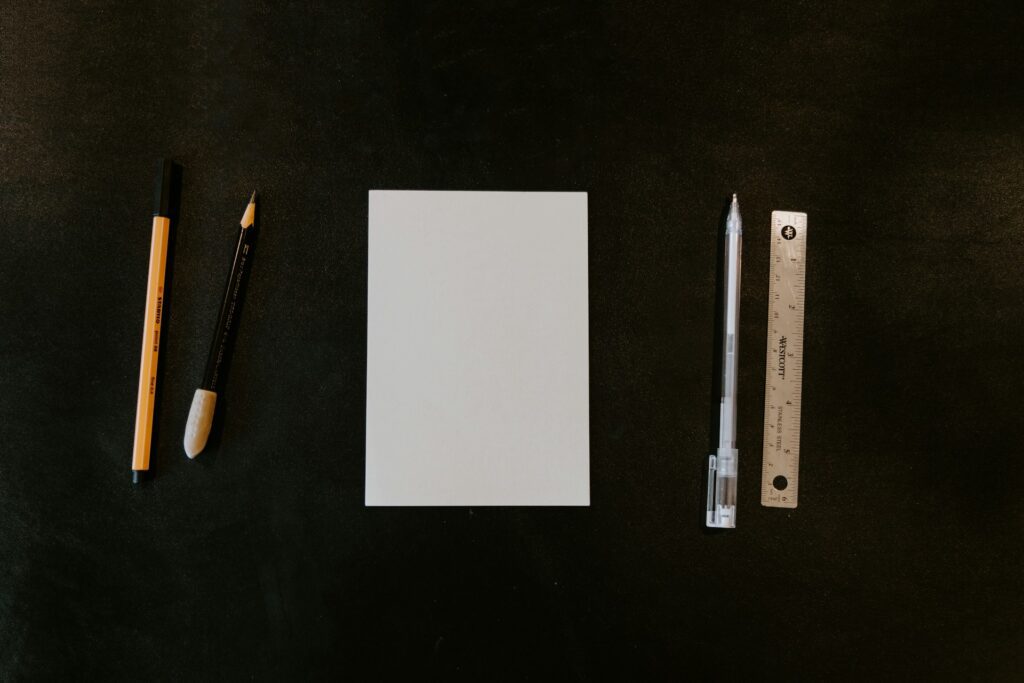Mental toughness is the psychological edge that helps people cope better than others with the many demands life throws their way. It’s not about being unshakable like a robot—it’s about being resilient, adaptable, and disciplined when things don’t go according to plan. Think of it like the armor for your mind. It helps you stay calm under pressure, keep pushing when you’re tired, and maintain confidence even when you’re failing.
People often confuse mental toughness with being emotionless or suppressing feelings. That’s far from the truth. Mentally tough individuals feel everything deeply—they just don’t let those feelings run the show. Instead, they manage emotions, shift perspective, and continue moving forward. It’s about bouncing back from setbacks with more strength than you had before.
In a world where distractions, negativity, and self-doubt are the norm, mental toughness gives you the clarity to stay aligned with your purpose. Whether you’re an entrepreneur, student, parent, or athlete, developing this skill can transform how you face challenges and accomplish goals.
Why It Matters in Daily Life
Mental toughness is not just for elite performers or military professionals—it’s essential for everyday life. Ever feel like you want to give up at the first sign of difficulty? That’s where mental resilience comes in. Whether it’s a failed project, a rough breakup, or just getting out of bed when you’re not motivated, mental toughness is what keeps you going.
It influences everything—from how you manage stress at work, deal with criticism, stay on a fitness journey, or navigate tough conversations. Mentally tough individuals don’t crumble under pressure. Instead, they see it as fuel.
In your personal life, it helps you become more self-aware and emotionally balanced. In your professional life, it makes you more dependable and strategic under pressure. The best part? It’s not something you’re born with. It can be built and trained—just like a muscle.
Day 1–5: Laying the Foundation

Understanding Your Mental Landscape
Before you can build anything solid, you need to know what you’re working with. These first five days are all about observation. Take a deep dive into your mental habits. Are you someone who gives up easily? Do you spiral into negativity when things go wrong? Be honest. Awareness is your starting point.
Spend time each day reflecting. Use a journal or voice notes. Write about what stresses you out, how you typically react to adversity, and what your internal dialogue sounds like when you’re under pressure. This process helps you spot your mental weak spots.
Also, take note of your strengths. Maybe you’re great at staying calm in chaos but struggle with consistency. Knowing this helps you tailor your 30-day plan to reinforce what’s already working and patch up the areas where you tend to fall apart.
Identifying Limiting Beliefs and Habits
We all have internal scripts running on autopilot. “I’m not good enough.” “I can’t handle failure.” “I’ll never change.” These thoughts aren’t facts—they’re beliefs you’ve repeated so often they feel true. But they’re usually just outdated coping mechanisms.
During this phase, begin challenging these beliefs. Every time a limiting thought arises, pause and ask, “Is this actually true?” Most of the time, the answer is no. Start replacing these thoughts with more empowering ones.
In parallel, begin tracking habits that are sabotaging your growth. Maybe it’s procrastinating, doom-scrolling, or overcommitting. These small habits chip away at your resilience. Replace them with new rituals—like setting a morning routine, practicing gratitude, or just making your bed daily.
It’s not about massive changes overnight. It’s about gradually replacing low-energy behaviors with high-impact ones that signal, “I’ve got control over my life.”
Creating a 30-Day Mental Fitness Plan
Just like a workout plan strengthens your body, a mental toughness plan strengthens your mind. So now that you’ve done some introspection, map out your 30-day strategy.
Break your month into weekly themes:
- Week 1: Awareness and mindset reset
- Week 2: Discipline and discomfort
- Week 3: Emotional resilience and clarity
- Week 4: Confidence and long-term sustainability
Set simple daily non-negotiables. This could include:
- 10 minutes of mindfulness
- Journaling 3 wins per day
- 1 uncomfortable task per day
- Daily affirmation practice
- 20-minute reading on mindset
By having a structure, you’re no longer reacting to life. You’re intentionally designing your inner strength, one day at a time.
Day 6–10: Embracing Discomfort

The Power of Stepping Outside Your Comfort Zone
Let’s be real—comfort feels great, but it’s where growth goes to die. Mental toughness grows when you willingly choose the hard path. This doesn’t mean you need to go skydiving or run a marathon. It means you start saying “yes” to challenges that make you sweat a little.
During days 6–10, pick one thing each day that scares or stretches you. Maybe it’s waking up at 5 a.m., going to a networking event alone, speaking up in a meeting, or holding yourself accountable to a goal you keep dodging.
The goal isn’t perfection—it’s exposure. The more frequently you push your edge, the wider your comfort zone becomes. And with every stretch, your brain registers, “I can handle this.” That’s the muscle-building we’re after.
Building a Habit of Doing Hard Things
Doing hard things is a habit, not a talent. Mentally tough people aren’t fearless—they’re trained to act in spite of fear. So how do you start building that habit?
Start with micro-challenges:
- Take cold showers
- Do 20 push-ups every time you complain
- Speak in front of a small group
- Say no when you normally say yes to avoid conflict
These actions may seem small, but they teach your brain to associate difficulty with growth instead of avoidance. Over time, you’ll notice you start to lean into hard tasks because they make you sharper, not weaker.
Remember: The pain of discipline is always less than the pain of regret.
Daily Challenges to Test Your Grit
Here’s a 5-day grit challenge you can plug into your plan:
- Day 6: Wake up 1 hour earlier and do something productive.
- Day 7: Do a random act of kindness with no recognition.
- Day 8: Say “no” to something that drains your energy.
- Day 9: Speak up in a situation you usually avoid.
- Day 10: Do a task you’ve procrastinated for over a week.
These mini-missions are like reps in the gym for your brain. They test your mental strength in the small moments—where it matters most.
Day 11–15: Developing Focus and Discipline

Practicing Daily Meditation and Mindfulness
If you’re constantly distracted, your mental strength takes a hit. Focus is like a spotlight—it determines what your brain pays attention to. And with everything vying for your attention these days, from social media to emails to endless notifications, sharpening your focus is essential for building mental toughness.
Start by incorporating daily meditation into your routine. You don’t need to sit cross-legged for hours—just 10 minutes a day of mindful breathing can transform how you handle stress. Meditation trains your brain to slow down, observe your thoughts, and redirect your focus with intention.
Mindfulness isn’t just about being calm; it’s about being aware. It helps you notice when your mind is slipping into doubt, fear, or distraction—and then gently pulling it back to the present. This skill is the root of mental discipline.
Pair meditation with mindful tasks throughout your day:
- Eat your meals without screens
- Take a walk without your phone
- Focus on one task at a time—no multitasking
Over time, your ability to stay focused and present—even in stressful situations—will skyrocket.
Eliminating Distractions and Staying Committed
Mental toughness isn’t built in perfect environments—it’s forged in chaos. So, if you want to stay on track, you need to eliminate the distractions that are pulling you off course. Whether it’s your phone, a toxic friend, or endless to-do lists, trimming the mental fat is key to building resilience.
Start by auditing your time. For one day, track where every minute goes. You’ll probably be shocked at how much time is lost to mindless scrolling, unimportant emails, or multitasking.
Then, apply the “Eliminate, Automate, Delegate” method:
- Eliminate: Cut out time-wasters completely
- Automate: Use tools or systems to handle repetitive tasks
- Delegate: Hand off tasks that don’t need your attention
Finally, create a commitment ritual. This can be something as simple as writing your top 3 goals every morning, reviewing your wins at night, or having an accountability buddy. Discipline thrives in structure.
Remember: You don’t need more time—you need more focus. And focus is a choice you make every single day.
Building Willpower Through Micro-Wins
Willpower isn’t just something you wake up with—it’s something you train. And the best way to build it? Stack up micro-wins.
Micro-wins are small victories that remind your brain, “I can do this.” When repeated daily, they form the foundation of confidence and self-belief. Whether it’s resisting the urge to hit snooze, choosing a salad over junk food, or finishing a tough task, every small win strengthens your will.
Here’s a micro-win routine you can try:
- Morning: Make your bed and drink a glass of water
- Midday: Complete your most difficult task first
- Evening: Reflect and write down 3 wins for the day
You’ll notice a shift. These wins start to compound. You begin showing up differently. You start trusting yourself. And that trust is the birthplace of unshakable mental toughness.
Day 16–20: Strengthening Emotional Resilience

How to Handle Criticism and Failure Positively
Criticism and failure sting. But here’s the thing: mentally tough people expect them. They don’t see these moments as proof they’re unworthy—they see them as feedback.
If you’re someone who takes everything personally, it’s time to shift your perspective. Not all criticism is an attack. Some of it is a gift—painful, yes, but valuable. The key is to separate your identity from your performance.
Try this technique when facing criticism:
- Pause: Don’t react immediately
- Process: Ask, “What part of this is true?”
- Pivot: Decide how you’ll grow from it
Failure, on the other hand, is your best teacher. Every successful person has failed more times than you’ve even tried. The difference? They didn’t quit. Use failure as data. Adjust your approach. Then go again.
When you view criticism and failure through the lens of growth, you become nearly unstoppable.
Journaling to Process Negative Emotions
Bottled emotions are like pressure cookers—they eventually explode. Journaling is the release valve. It helps you untangle messy thoughts, make sense of hard days, and regain emotional clarity.
Spend 10–15 minutes each evening writing about:
- What triggered you emotionally today?
- How did you respond?
- What could you do differently next time?
You can also use prompts like:
- “What am I struggling with right now?”
- “What am I learning from this pain?”
- “What do I need to let go of?”
The goal isn’t to write a novel—it’s to clear your head. Journaling allows you to process negative emotions without reacting impulsively. It builds self-awareness, which is the bedrock of emotional resilience.
When you learn to manage your emotions instead of avoiding them, you stop being a prisoner of your mind—and become its master.
Reframing Stress Into Strength
Stress isn’t always bad. In fact, the right kind of stress—called “eustress”—can actually enhance performance and mental growth. The problem is we often see stress as the enemy.
Mental toughness requires a reframe. Instead of saying, “This is too much,” train yourself to say, “This is stretching me.” That small shift changes everything.
Here’s how to use stress to your advantage:
- Label it differently: Replace “I’m stressed” with “I’m energized.”
- Take action: Stress is often a signal that something matters. Use it to fuel momentum.
- Recover well: Just like muscles need rest after a workout, your brain needs downtime. Prioritize sleep, fun, and unplugged time.
When you change your relationship with stress, you unlock a hidden advantage. It becomes the pressure that polishes your potential instead of the weight that breaks you.
Day 21–25: Mastering Self-Talk and Confidence

Shifting From Negative to Empowering Inner Dialogue
Let’s face it—your biggest bully isn’t out in the world. It’s often living rent-free in your head. That voice that says, “You’re not good enough,” “Why even try?” or “You always mess things up.” Sound familiar? This is your inner critic, and it’s killing your mental toughness.
But here’s the thing: just because you hear that voice doesn’t mean you have to believe it. One of the most powerful shifts you can make is transforming your internal dialogue from self-doubt to self-belief.
Start by catching the negative chatter. Any time you say something harsh to yourself, write it down. Then rewrite it into something empowering. For example:
- “I always fail” becomes “I’m learning from every setback.”
- “I can’t do this” becomes “This is hard, but I can figure it out.”
- “I’m a mess” becomes “I’m doing my best, and that’s enough.”
Also, talk to yourself like someone you love. You wouldn’t call your best friend a failure, so why do you do it to yourself?
Changing your self-talk doesn’t mean lying to yourself—it means choosing words that lift you instead of crush you. And over time, those words become your new reality.
Visualization Techniques for Confidence
Confidence isn’t something you wait to feel—it’s something you create. And visualization is one of the most underrated tools in the mental toughness toolbox.
Olympic athletes, top CEOs, and elite performers all use visualization to rehearse success before it happens. Why? Because your brain doesn’t know the difference between real and vividly imagined experiences.
Here’s how to do it:
- Find a quiet space and close your eyes
- Picture yourself succeeding at something you want—giving a speech, nailing an interview, running a marathon
- Feel the emotion—confidence, pride, excitement
- Repeat this daily, ideally in the morning or before bed
Visualization rewires your brain to expect success, which builds confidence. And when you believe you can do something, you act in ways that make it real.
Bonus tip: Visualize not just the win, but the process—overcoming setbacks, staying calm under pressure, pushing through fear. This makes the visualization even more powerful.
The Role of Affirmations in Mental Toughness
Affirmations might sound cheesy, but when used correctly, they are mental armor. These are short, powerful statements that shape your beliefs and behaviors.
Here’s the trick: they have to be believable. Saying “I’m the best in the world” when you don’t believe it will backfire. But saying “I’m getting stronger every day” builds momentum.
Here are a few affirmations to strengthen mental toughness:
- “I do hard things.”
- “Every challenge grows me.”
- “I am focused, disciplined, and resilient.”
- “I am not my thoughts—I choose my actions.”
Write them on sticky notes, put them on your mirror, repeat them during your commute, or set reminders on your phone. The more you repeat them, the deeper they go.
Affirmations aren’t magic—they’re training. And with consistent use, they program your mind for grit, courage, and confidence.
Day 26–30: Solidifying Your Mental Toughness

Reflecting on Progress and Lessons Learned
You’ve come a long way. Now it’s time to take inventory. Reflection is where growth turns into wisdom. It’s how you anchor everything you’ve built over the last 25 days.
Set aside quiet time and ask yourself:
- What moments tested my mental toughness?
- When did I surprise myself with strength or clarity?
- What habits helped me the most?
- Where did I fall short—and why?
Write these down. You’re not just looking for wins—you’re looking for patterns. Patterns tell you where to double down and where to improve.
Reflection also helps you avoid slipping back into old habits. It’s your opportunity to re-commit with more insight and intention.
A powerful journaling prompt: “What kind of person have I become in the last 30 days—and who do I want to become next?”
Building Long-Term Mental Toughness Habits
Mental toughness isn’t built once—it’s built daily. So how do you keep the momentum going?
Start by identifying your non-negotiables—those core habits that keep you sharp and grounded. These might include:
- 10 minutes of daily mindfulness
- Weekly reflection
- Regular exposure to challenges (physical or mental)
- Reading one mindset book per month
- Practicing gratitude daily
Then, embed them into your lifestyle. Put them on your calendar. Make them part of your identity. Don’t treat them like optional add-ons—treat them like essentials, the way you treat brushing your teeth or eating meals.
Also, surround yourself with mentally strong people. Your environment either reinforces your toughness or slowly chips away at it. Choose wisely.
Lastly, celebrate your journey. You’ve done what most people won’t—chosen discomfort, faced your inner critic, and grown stronger through it all. That deserves recognition.
Setting Goals Beyond the 30 Days
What now? You’ve laid the foundation, but now it’s time to build something even greater. Set your sights on bigger goals—not just what you want to do, but who you want to be.
Use the SMART goal framework:
- Specific: Define exactly what you want
- Measurable: Track your progress
- Achievable: Stretch yourself without overwhelming
- Relevant: Align with your values
- Time-bound: Set a deadline
Here’s an example: “In the next 60 days, I will wake up at 6 a.m., meditate for 15 minutes, and complete one uncomfortable task daily to continue growing my mental toughness.”
Make your goals part of your identity. You’re not someone trying to be mentally tough anymore—you are someone who lives with discipline, grit, and clarity.
Conclusion
Building mental toughness in 30 days isn’t about becoming superhuman. It’s about deciding that you’re no longer okay with living small. It’s about replacing self-doubt with self-discipline, comfort with courage, and fear with focus.
Every day, you have the choice to rise or retreat. And now, you have the blueprint to rise—again and again.
The best part? This journey doesn’t end here. Mental toughness is a lifelong practice. And the more you work on it, the stronger, wiser, and more unstoppable you become.
FAQs
1. Can anyone develop mental toughness?
Absolutely. Mental toughness is not a genetic gift—it’s a skill anyone can build with consistent practice and the right mindset.
2. What are the biggest obstacles to building mental strength?
Procrastination, fear of discomfort, negative self-talk, and lack of consistency are some of the biggest roadblocks. Awareness and small daily actions help overcome them.
3. How can I measure my mental toughness?
You can track it through your response to adversity, ability to stick to commitments, emotional control, and willingness to do hard things even when you don’t feel like it.
4. Is mental toughness the same as emotional intelligence?
They’re related but not identical. Mental toughness is about resilience and discipline, while emotional intelligence is about managing emotions and relationships. Both are essential for success.
5. How do athletes train their mental toughness daily?
Athletes use visualization, consistent routines, mental coaching, recovery techniques, and exposure to high-pressure situations to sharpen their mental edge.







